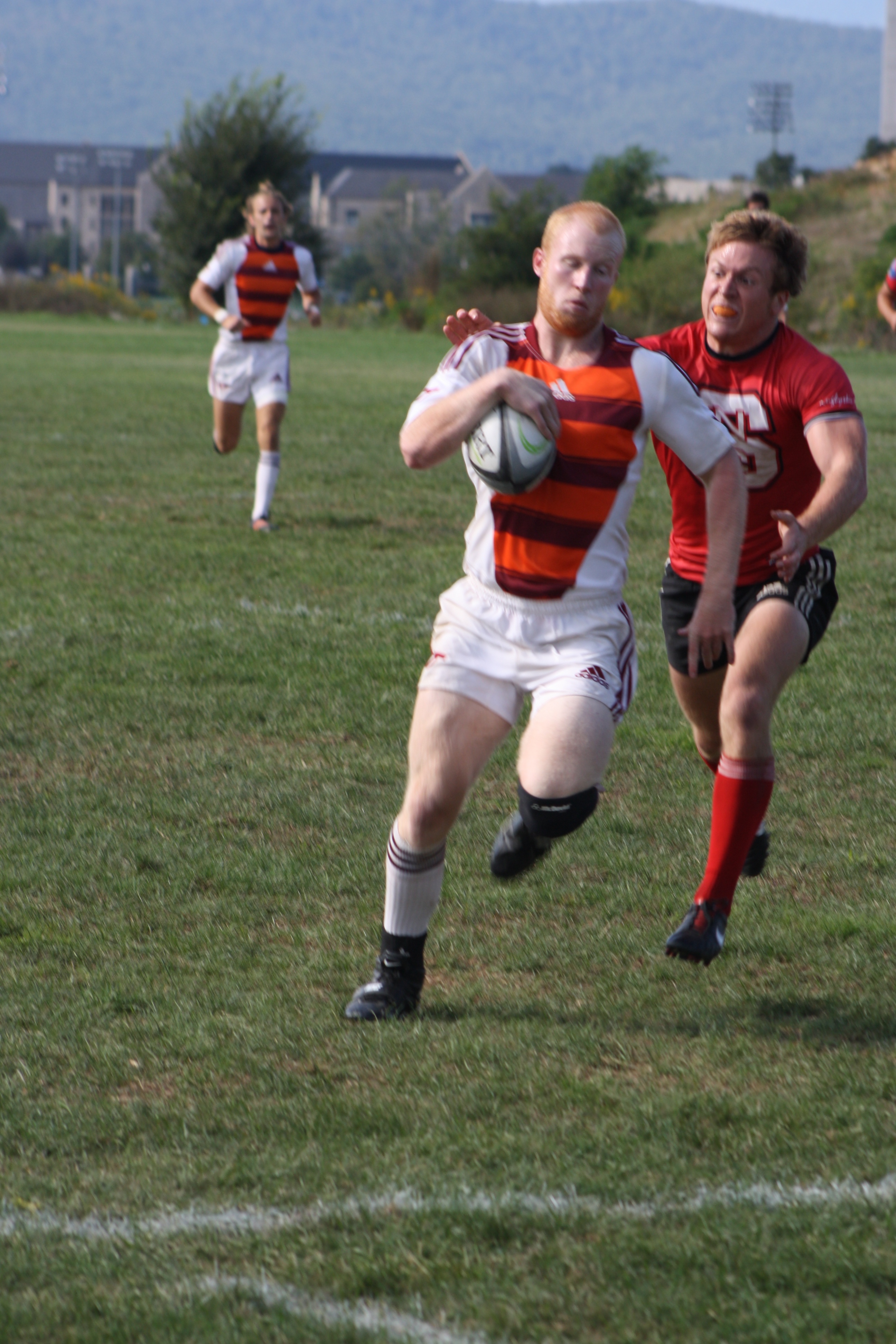Club rugby team prepares for collegiate championship June 1-2

The Virginia Tech Rugby Sevens Team will play June 1-2 in the Collegiate Rugby Championship in Philadelphia. The event will be televised by NBC Sports.
A concentrated training regimen, which included yoga and other fitness classes, helped prepare the club team. For the university’s 31 club sports teams, the training involves much more than fitness, however. Lessons in leadership, teamwork, and time management are integral parts of the experience.
“Being competitive demands a lot of us,” said rugby player Paul Caron of Great Falls, Va., a spring 2013 graduate who received degrees in biological sciences and in Spanish. “We have scheduled fitness and practice sessions Monday through Thursday and sometimes on Fridays before an important match. Saturdays are match days. Sundays are mandatory rest days.”
Adding indoor fitness classes to training in the weight room and on the field is a form of cross-conditioning, which allows athletes to develop well-rounded strength, endurance, and flexibility. The rugby team also utilizes a nutritionist, while the women’s club lacrosse team takes step classes and the cycling team attends spin.
“People don’t realize the commitment a club sport takes,” said Rachael Pascale of Ashburn, Va., vice president of the women’s lacrosse club team and a rising senior majoring in mathematics in the College of Science. “The training is certainly intense alongside the demands of being a full-time student,” Pascale said. But Pascale was also referring to the administrative work that club officers have to handle, including match scheduling, travel, paperwork, and fundraising.
The recreational sports department provides support for managing finances, meeting safety requirements, and navigating university policies and procedures. But otherwise, the department requires club sports teams to be self-sufficient.
Alan Glick, assistant director for sport clubs and marketing, said the students are drawn together by the love of competition, but club officers also end up learning a lot about management. He said he often hears from alumni who have reflected on their club sports experiences and are grateful for having had the opportunity to develop leadership skills.
Current students say that the opportunity to play club sports factored into their decisions to enroll at Virginia Tech and the competition greatly influences their campus experiences.
Caron said he knew since he was a child that he wanted to play rugby because his father played professionally. He wanted to play for Virginia Tech because his brother had done so. Pascale declined Division II and Division III lacrosse scholarships because Virginia Tech was her first-choice university and joining the women’s team allowed her to continue her love for the game.
Will Massey of Virginia Beach, Va., a spring 2013 graduate who received a degree in marketing management, cycled recreationally in high school. When he came to the university as a freshman, he said he immediately sought out the cycling team as a way to get involved. He said cycling has not only enriched his university experience, it has taught him time management and discipline.
Competitive cycling “made me a better student,” Massey said. “And it made me feel like I am a real part of my university. Racing for [Virginia] Tech and having strangers cheer for you because you are a Hokie is amazing.”
“A lot of students don’t want to give up the sport they played in high school, but a varsity scholarship just isn’t an option for every student-athlete. Club sports allow them to train, compete, travel, and win,” Glick saod.
And win they do. The rugby sevens team has proven that recreational sports can be a road to a national invitational tournament. Next month, players will be taking their Hokie Spirit to one such tournament, where hundreds of Hokie fans — including more than 300 who bought tickets in advance — will be cheering for another great win.
Rugby sevens is a variant of rugby in which each side has seven players instead of the usual 15 and the matches are shorter with only seven-minute halves instead of 40 minutes.
Written by Melissa Richards.




